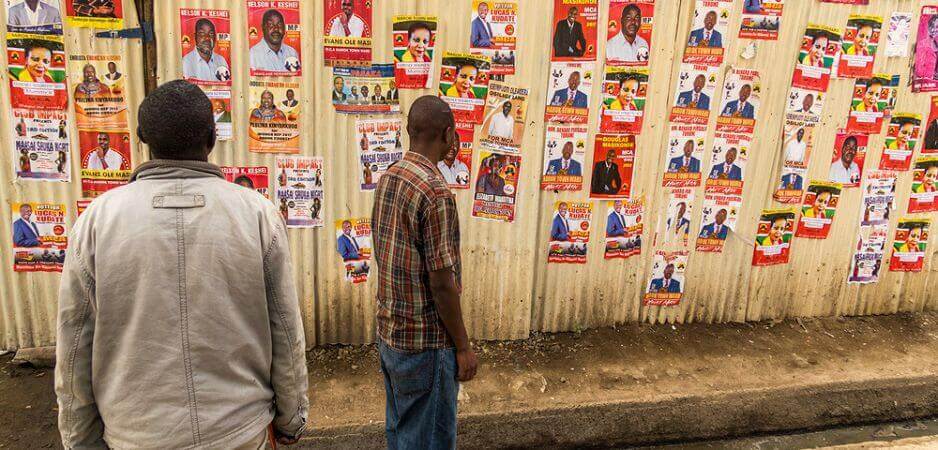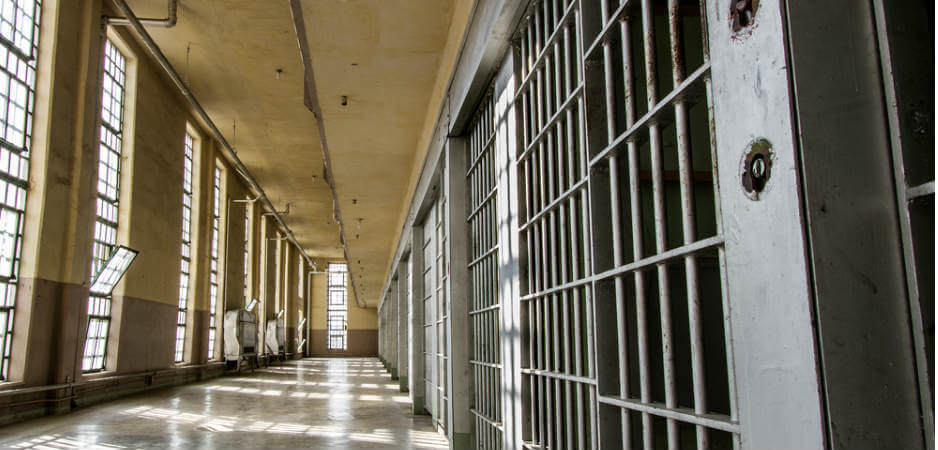Clashes in Charlottesville are as much about class and urban gentrification as about masculinity and supremacist ideology in an increasingly unequal society.
For those who like rollercoaster rides and do not live under a rock, reading world news must be jolly good fun. This week, North Korean dictator Kim Jong-un threatened to strike Guam, a tiny American territory in the Pacific. In response, President Donald Trump threatened to unleash “fire and fury like the world has never seen.” Some take the view that this is mere saber-rattling. Kim needs the specter of evil Uncle Sam to keep his hungry and miserable populace under his thumb. For Trump, North Korea acts as a convenient distraction from Russia. Both can breathe fire to keep the pot simmering without boiling over. Others worry that the rollercoaster is not entirely safe and might come unstuck.
The Kim-Trump soap opera put events elsewhere in shade, especially those in Africa. South African President Jacob Zuma survived a no-confidence vote. In a secret ballot, many members of his own party voted against him, but he managed to hold on by 198 votes to 177. Zuma is embroiled in too many sordid scandals, especially “Guptagate” that has been hanging around his neck like a millstone since last year. Kenyan President Uhuru Kenyatta won a second term even as opposition leader Raila Odinga alleged voting fraud. While Kenyatta won 54.3% of the vote, Rwandan President Paul Kagame won a whopping 99% of the vote. Apparently, 97% of Rwanda’s 6.9 million voters turned up at the polls and Kagame defiantly declared that he did not need to convince the West that he was a democrat.
The Kim-Trump joust even put Venezuela out of the spotlight. The May 7 edition of The World This Week chronicled how the country was hurtling to total collapse. That downward spiral continues and Trump might have exacerbated it by loose talk of a potential “military option” to resolve Venezuela’s political crisis. President Nicolas Maduro is presiding over a country that is fast disintegrating into civil war. Even Colombia, the staunchest ally of the US in the region, has condemned “military measures and the use of force.”
Yet even the Kim-Trump rollercoaster was upstaged by a day of reckoning in Charlottesville, Virginia. A “motley crew of militia, racists, and neo-Nazis” gathered at Emancipation Park to protest against the planned removal of a statue of Confederate General Robert E. Lee. Counter-protesters gathered elsewhere and a man drove into them, killing a 32-year-old woman and injuring 19 others.
What is going on in the land of the free and the home of the brave?
THE RISE OF THE ALT-RIGHT
In August 2016, this author gave a talk at Google on the global rise of the far right. On November 6, 2016, the BBC analyzed how Trump’s candidacy had galvanized the alt-right, or the alternative right, in the United States. This political movement is relatively new, strangely amorphous and ferociously passionate. Its adherents claim to fight for liberty and free speech. Opponents denounce them as racist and misogynist.
The alt-right is hard to define but has some common characteristics. It rejects the dominant left-wing ideology of American university campuses as well as the mainstream conservatism of the Republican Party. The alt-right has mobilized using the internet with websites, online chatrooms, social media and memes. While it claims free speech, its adherents descend on critics like locusts, using sexually explicit insults and vicious threats. The alt-right claims that the right to free speech includes the right to offend. Therefore, it is ironic that it takes offence far too easily.
Many surmise that angry white men form the alt-right base. According to Michael Kimmel of Stony Brook University, these men think they do not matter in the world and have been tossed aside. Participation in the alt-right movement “gives them validation of their masculinity.” Comparing these men to Osama bin Laden, Kimmel argues that “shame and humiliation underlie basically all violence.” Just as bin Laden felt emasculated by the presence of American troops on his ancestral land, marginalized white men who think of themselves as descendants of conquering pioneers find their rotting Rust Belt towns deeply humiliating. Crumbling neighborhoods and deadbeat jobs fill them with a sense of shame and loss. If they have suffered child abuse or trauma in war, then the alt-right or the far right or jihadism gives them both camaraderie of the community and a sacred mission.
Daniel Friberg and his ilk provide proof that Kimmel might have a point. Friberg penned a stirring article “in defense of the masculine movement,” arguing that a weak leader can only recruit weak men. He believes a civilizational struggle is in the offing and wants “tough men to deal with the conflicts ahead that await our people.” He claims that “masculine leadership” is the need of the hour and “the passive-aggressive castrati trying to pose as our leaders” have to be cast by the wayside.
Throughout his campaign, Trump made the same argument. He incessantly thundered that America did not win anymore, no one respected it as a result and Barack Obama had been worthlessly weak. With his glitzy hotels, glamorous women and private jets, Trump sold the image of strength, wealth and success. The alt-right followed this Pied Piper from New York, seduced by his tirades against Mexicans and Muslims as well as his denunciation of free trade and free-riding American allies.
Many men find resonance in Trump’s words because they have been left behind in a fast-changing world. A new gender gap has opened up with boys lagging girls in “all segments of society, in all 50 states.” There may still be more boy geniuses than girl geniuses, but far more boys than girls are at the bottom of the academic ranks. On average, women still earn less than men, but “the times the times they are a-changin’” and men do not like it one bit.
Apart from women, immigrants are triggering deep insecurities. Many white men do not like the sight of effeminate East or South Asian men who ascend to top jobs on Wall Street or in Silicon Valley. They are also uncomfortable with Hispanics from south of the border taking over jobs at the bottom of the pyramid, lowering wages and reducing living standards in the process. Their unease is not new. Like their 19th-century counterparts who put an end to Chinese immigration, working-class whites damn their elites for importing cheap labor in the form of nannies and gardeners.
 Many of these white men in the Deep South look back to the ante-bellum period before the Civil War with much nostalgia. In their imagined past, this was a time when white men led lives of rugged individualism. They remember George Washington and Thomas Jefferson as exemplars of this era. After the Civil War, segregation followed slavery. It ended only in the 1960s after a protracted and bloody struggle for civil rights. Even today, darker skinned people have a tougher life in the US. For instance, one in three black men end up in prison once during their lifetime. Besides, black neighborhoods are breaking apart due to gentrification. Despite the continuing inequities faced by the black population, many white men feel threatened. Their fear drives support for violent policing, mass incarceration and the alt-right movement. With Trump as president, this movement feels emboldened to flex its muscles and is doing so with deadly effect.
Many of these white men in the Deep South look back to the ante-bellum period before the Civil War with much nostalgia. In their imagined past, this was a time when white men led lives of rugged individualism. They remember George Washington and Thomas Jefferson as exemplars of this era. After the Civil War, segregation followed slavery. It ended only in the 1960s after a protracted and bloody struggle for civil rights. Even today, darker skinned people have a tougher life in the US. For instance, one in three black men end up in prison once during their lifetime. Besides, black neighborhoods are breaking apart due to gentrification. Despite the continuing inequities faced by the black population, many white men feel threatened. Their fear drives support for violent policing, mass incarceration and the alt-right movement. With Trump as president, this movement feels emboldened to flex its muscles and is doing so with deadly effect.
YIN AND YANG
For the last eight years, some white Americans reviled Obama. In 2010, a young man from Alabama and an elderly lady in Arizona told this author that the 44th president deserved to be shot. Naturally, both happened to be white. Yet a naive Colombian Yale graduate asserts that the incidents in Charlottesville are very un-American. It would be easy to dismiss the Colombian as indoctrinated. Yet not only white but also colored immigrants believe in the idea of America as a multiracial land of opportunity, freedom and justice. This belief draws immigrants from distant shores and gives the US its unrivaled soft power. As Obama’s two election victories demonstrated, there is an element to truth to this idea, but it hides a very American ugly underbelly.
Every society has a constant struggle between contending social forces. Some strive to preserve the status quo while others fight for change. Sometimes, change is not all good and can lead to the Reign of Terror or the Great Leap Forward. Sometimes, change is both good and bad. Seventy years ago, India gained independence but was partitioned into two countries that are now nuclear-armed rivals. In the US, Jefferson not only penned the gloriously eloquent Declaration of Independence, but also “fathered at least one” of his slave’s children. Obama’s two victories might have provoked a “whitelash,” with many damning the role of racism, sexism and right-wing media in the 2016 elections.
Ascribing Trump’s victory to whitelash alone would be more than a touch simplistic though. The November 13, 2016, edition of The World This Week examined the perfect storm that enabled Trump to win, including deep inequalities, declining education, disintegrating news media, self-serving political correctness, and the sanctimonious hypocrisy of the Clintonite technocratic elite. While the perfect storm might have caused Trump’s victory, no one celebrated it more than the alt-right, which relished the sight of a macho leader beating a feminist castrator. In their pantomime world, draft dodging Trump was given mystic qualities of manhood and the savior of the white man under siege.
In Charlottesville, these besieged men, many of them college-educated, turned up to fight against northern interlopers who have taken over their town, made it liberal and are pulling down a symbol from their past. Lee was the South’s gallant military leader in the Civil War who fought the good fight as a true son of the soil. The removal of his statue is not popular with all, and the most recent demonstration in Charlottesville was the third one over the last few months. Organized under the umbrella of “Unite the Right,” white men turned up in tactical gear, openly carrying rifles, donning black shirts, sporting helmets, wearing boots and making fascist salutes. To complete the spectacle, David Duke, the former grand wizard of the Ku Klux Klan, was resplendently cheery while egging the crowd on.
The Charlottesville rally was the largest gathering of white nationalists in decades. They were confronted with counter-protests. Many of the counter-protesters confronted these white nationalists, threw water bottles at them and chanted, “Off our streets, Nazi scum.” Both sides used pepper spray, which filled the air, even as “authorities took a laissez faire approach.” Eventually, riot police had to clear the park and the street. At night, 200 white nationalists still managed to gather in Nameless Field and marched through the University of Virginia, holding lit torches and chanting racist slogans. At the base of Jefferson’s statue, they clashed with university students who confronted them.
The governor of Virginia declared a state of emergency and told white supremacists to go home. Trump condemned “hatred, bigotry and violence from all sources and all sides.” This led to paroxysms of outrage because many were looking for an unequivocal condemnation of “white supremacism and domestic terrorism” even from Trump. For many of his supporters, “Make America Great Again” meant “Make America White Again.” Ronald Reagan had meant the same when he talked of “states’ rights” while kicking off his campaign at Neshoba County, where three civil rights workers were lynched in 1964. It was classic dog-whistle politics but, to his credit, Reagan did not let his white supporters get out of hand after winning the election. In a coarser time, Trump has failed to pull off that feat.
NO CONFEDERATE STATUES AND NO BLACK NEIGHBORHOODS TOO
In 2015, white supremacist Dylann Roof killed nine black churchgoers in Charleston, South Carolina. In April 2016, the Southern Poverty Law Center catalogued 1,503 symbols of Confederacy in public spaces, 109 public schools named after Confederate heroes and more than 700 monuments or statues on public property. It found the Confederate flag flying in nine public places in six states. It also commented that the Mississippi state flag conspicuously incorporates the Confederate battle flag into its design.
By April 2016, there had been at least 100 attempts at the state and local levels to remove or alter publicly supported symbols of the Confederacy. The removal of Lee’s statue in Charlottesville is part of that phenomenon. Over the years, this cute town has gradually turned yuppie. It is home to the University of Virginia, founded by Jefferson and now a magnet for students from around the country if not around the world. This has fed an urban renewal with trendy restaurants, boutique shops and yoga studios making an appearance. Three years ago, Charlottesville was named America’s happiest city by the US National Bureau of Economic Research, earning the name “Joy Town, USA” from the country’s media.
In its pursuit of happiness, Charlottesville’s demography changed. A generation of liberal northern whites took over the city, pricing both white and black southerners out of the city. Legal segregation has now been replaced by economic segregation, which few notice and even fewer examine. A series of redevelopment programs have razed black neighborhoods to the ground, pushing African Americans out of the city and into housing projects. Confederate symbols might offend northern sensibilities, but so do poor rundown neighborhoods.
Gentrification, the national urban phenomenon, has not spared Charlottesville. The story of “commerce and class and race and progress” is infernally complex in Joy Town, USA. Neighborhoods that survived “the strictures and injustices of life in the Jim Crow South” failed to survive urban renewal in Charlottesville. Hundreds of families left dilapidated houses for soulless ghettos so that white yuppies could move into renovated or freshly built structures to enjoy their happiness.
The clash in Charlottesville proves that the Yin and Yang struggle of the Civil War continues. Gun-toting southern whites see the removal of Lee’s statue as a continuation of carpetbaggers taking over their land. University students and white liberals may pull down Lee’s statue to parade their liberal credentials, but they have torn down historic black neighborhoods that survived slavery and segregation.
In the words of Berkeley historian Ti Ngo, “we are living in dark times.” No longer are “old hatreds just chapters in history books.” In American history, the Korean War of 1950-53 is often deemed the “Forgotten War” and the Civil Rights Movement is proclaimed as an unmitigated triumph. In the words of Ngo, “both have reemerged except, unlike the 1950s and 1960s, there is no chicken on every white middle class family’s plate.”
*[You can receive “The World This Week” directly in your inbox by subscribing to our mailing list. Simply visit Fair Observer and enter your email address in the space provided. Meanwhile, please find below five of our finest articles for the week.]
Qatar Confuses the West With Record Neymar Deal
Qatar is playing simultaneously on both sides of the global pitch, leaving Westerners unable to decide if it’s a friend or foe.
The record-breaking move of Brazilian football superstar Neymar da Silva Santos Júnior from Barcelona to Paris Saint-Germain likely would not have been possible without the financial support of a tiny Gulf nation under fire for its perceived support of Islamist terrorism: Qatar. That Qatar is even capable of being a key factor in the No. 1 telenovela of the summer transfer season is why the equally dramatic, but far more significant, geopolitical crisis has been so hard to solve more than 60 days in. The petroleum-rich emirate’s investments in world football rival those its accusers say have been offered to keep Islamist extremist movements alive. And the same state-funded company that owns the Al Jazeera news outlet — a focal point of the political controversy — also controls… Read more
Kenyan Elections: The Most Hotly Contested Since Independence
Despite familiar faces, this election might mark the end of an era and the emergence of new actors in Kenyan politics.
The general elections on August 8 are the most competitive and hotly contested in Kenyan history. This year, President Uhuru Kenyatta is seeking re-election while opposition leader Raila Odinga is probably running for the last time. It may be the last time Kenyatta is running too because the constitution prohibits a third term. Opinions polls place Kenyatta and Odinga neck and neck. According to an Infotrack poll, Odinga could beat Kenyatta. He is merely one percentage point ahead with support of 47% of voters in contrast to the 46% that Kenyatta commands. However, an earlier opinion poll by Ipsos Synovate had Kenyatta at 47%, with Odinga trailing at 43%. Both polls agree that no candidate is likely to get more than 50% of the vote that each… Read more
Is Nikki Haley Hoping to Climb the Ladder?
UN Ambassador Nikki Haley could be a mortal threat to the ambitions of the many white male Republicans hungering for the Oval Office.
The uncanny success of Nikki Haley in becoming the most public and quotable voice on President Donald Trump’s foreign policy team, combined with the telegenic UN ambassador’s apparent disinterest in the nuts and bolts of how the United Nations actually works, has piqued speculation among New York’s busy diplomats and idle diplomat-watchers alike: What is Haley’s game plan? The former South Carolina governor is clearly a political animal wandering a landscape of diplomatic plants. And, just as Madeleine Albright easily outshined the contentedly colorless Warren Christopher, Haley is blessed with a near-invisible secretary of state in Rex Tillerson. Unlike Albright, however, Nikki Haley isn’t gunning to be Tillerson’s successor when the time comes. Rather, she seems to be positioning herself to become Trump’s. That, at… Read more
Rethinking Incarceration: Europe’s Jihadist Incubators
Jailing returning jihadists among the general prison population presents a worrying source of radicalization in Europe.
On July 26, a German court sentenced Sven Lau, a known recruiter of foreign fighters, to more than five years in prison. One immediate concern following the continued loss of territory formerly controlled by Islamist terrorist organizations like the Islamic State (IS) and al-Nusra Front (now rebranded as Hayat Tahrir al-Sham or Liberation of the Levant Organization) is that the surviving foreign fighters that poured into the region from Europe will now be returning home. Over 900 people from Germany alone are estimated to have left the country to fight with terrorist and extremist groups, the majority of whom are still alive, meaning that Lau’s case will likely be one of many. Other European countries face similar dilemmas. Simply jailing extremists in the general prison population, rather than having the salutary effect… Read more
India: A Multitude of Problems of a Multilingual Nation
India needs more inclusive and less Hindi-alienating solutions for its language divides.
The recently constructed Bangalore metro garnered sufficient controversy a while back with its decision to have Hindi signage complementing that of English and Kannada, the vernacular language of the southern Indian state of Karnataka. Many people saw this as another attempt by the Modi government to “impose” Hindi on predominantly non-Hindi speaking regions. Social media, particularly Twitter, saw a number of people espouse this sentiment with the hashtag #NammaMetroHindiBeda, which translates as, “We don’t want Hindi in our Metro” from Kannada. Bangalore, the capital of Karnataka, has long been heralded as one of the most progressive and cosmopolitan cities of India, thanks to its housing of major industries that have been crucial to the growth story of India since economic liberalization started in 1991. In spite of this, if local populations have strong objections to oppose… Read more
The views expressed in this article are the author’s own and do not necessarily reflect Fair Observer’s editorial policy.
Photo Credit: Christopher Penler / Shutterstock.com
Support Fair Observer
We rely on your support for our independence, diversity and quality.
For more than 10 years, Fair Observer has been free, fair and independent. No billionaire owns us, no advertisers control us. We are a reader-supported nonprofit. Unlike many other publications, we keep our content free for readers regardless of where they live or whether they can afford to pay. We have no paywalls and no ads.
In the post-truth era of fake news, echo chambers and filter bubbles, we publish a plurality of perspectives from around the world. Anyone can publish with us, but everyone goes through a rigorous editorial process. So, you get fact-checked, well-reasoned content instead of noise.
We publish 2,500+ voices from 90+ countries. We also conduct education and training programs
on subjects ranging from digital media and journalism to writing and critical thinking. This
doesn’t come cheap. Servers, editors, trainers and web developers cost
money.
Please consider supporting us on a regular basis as a recurring donor or a
sustaining member.
Will you support FO’s journalism?
We rely on your support for our independence, diversity and quality.











